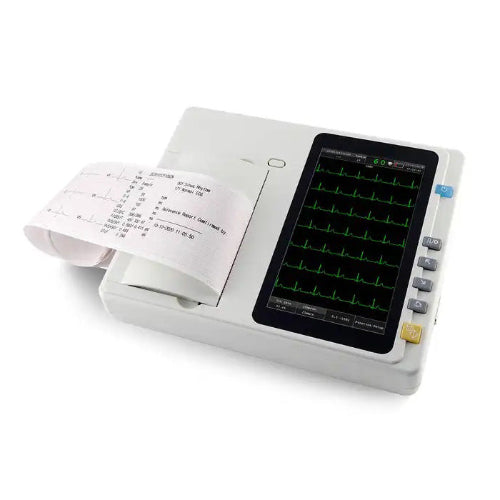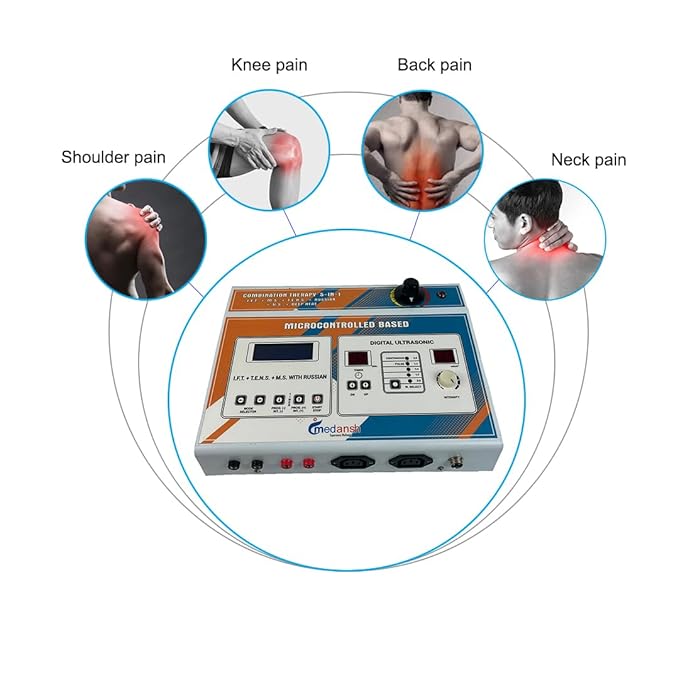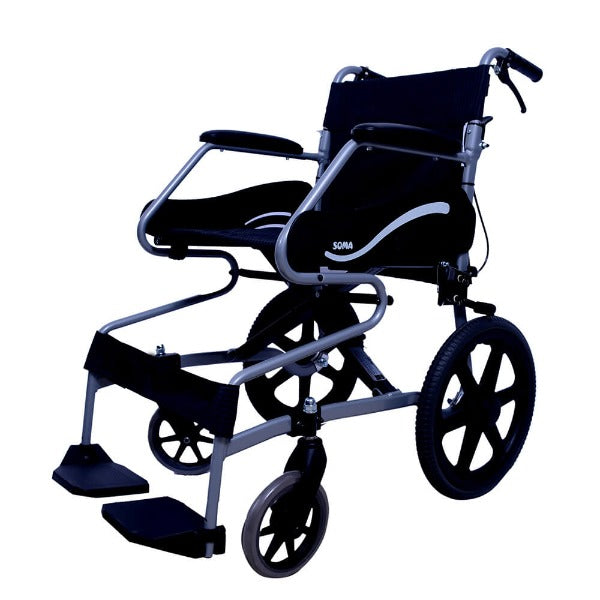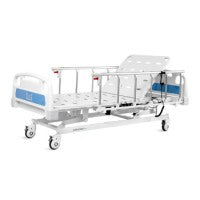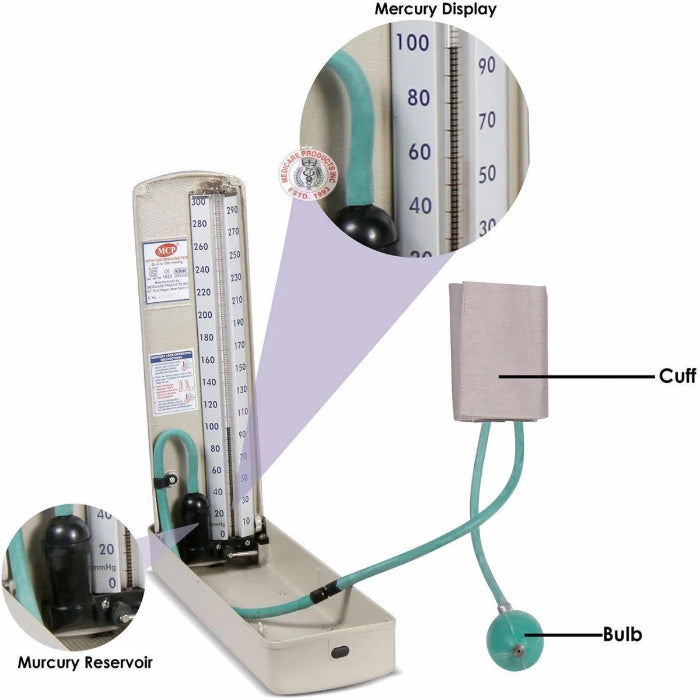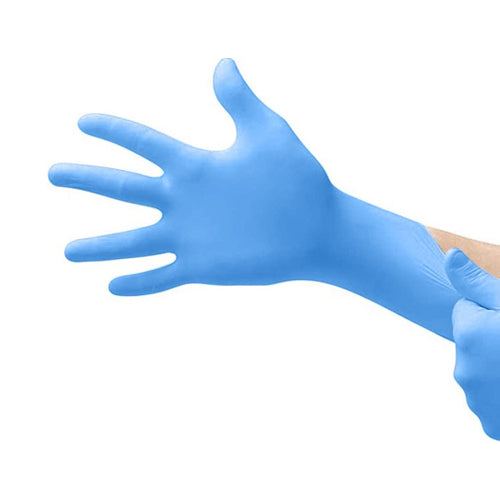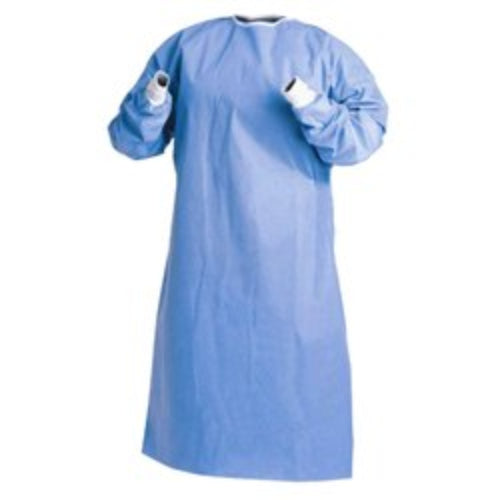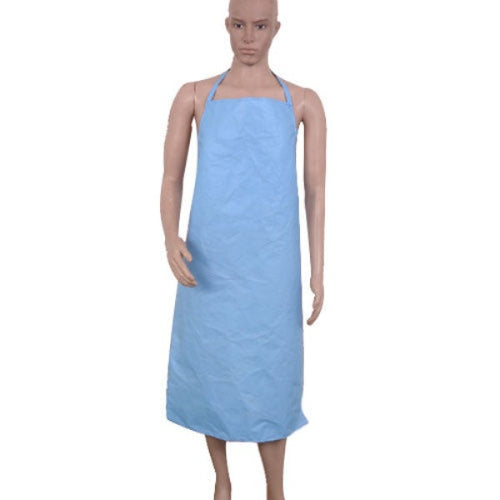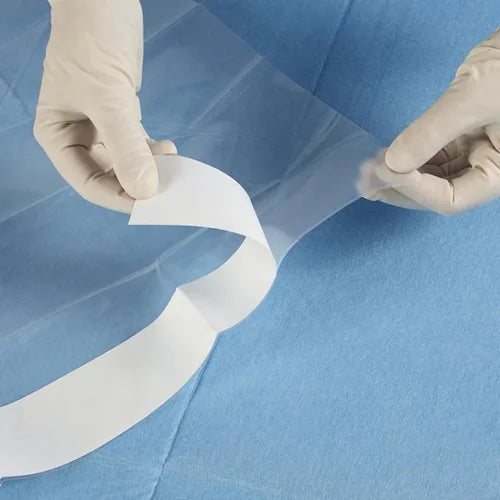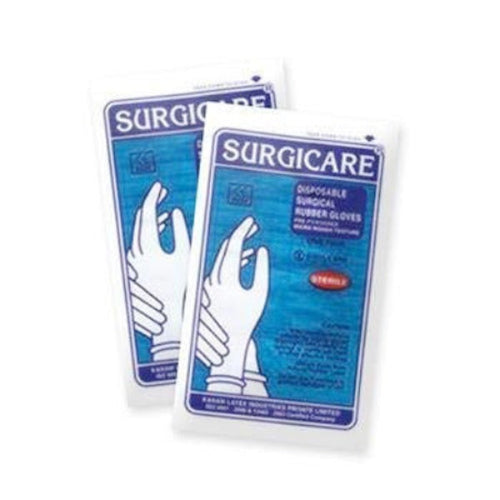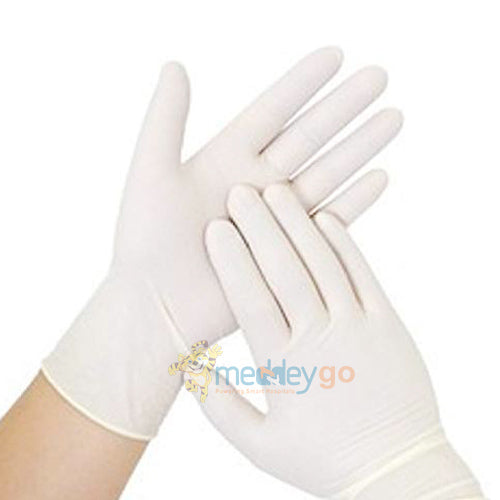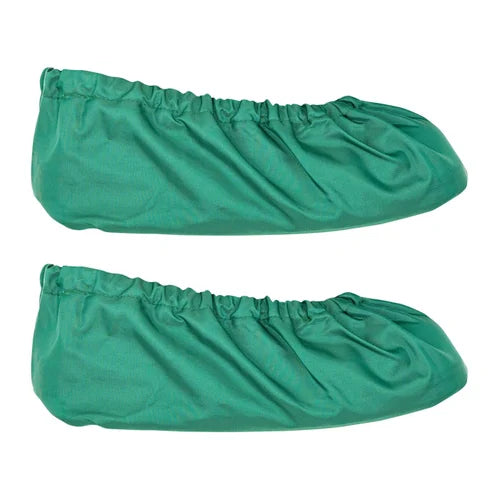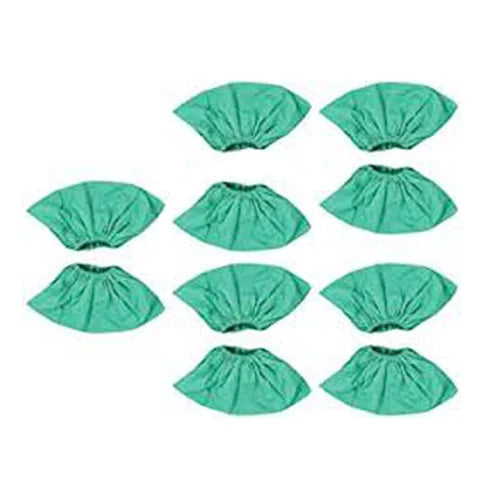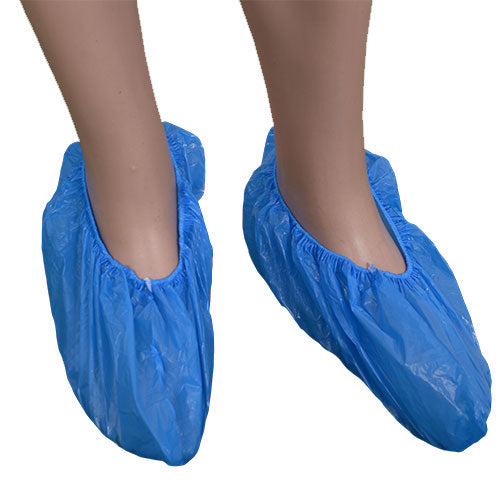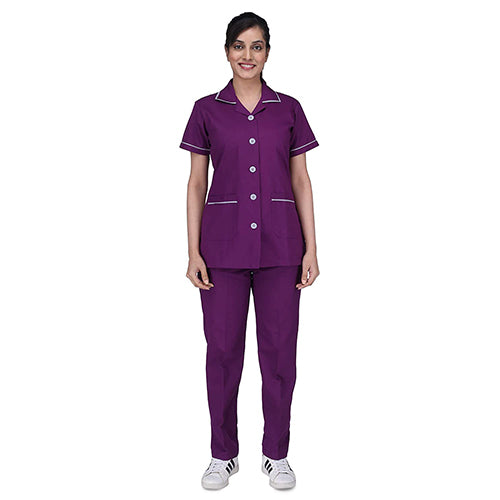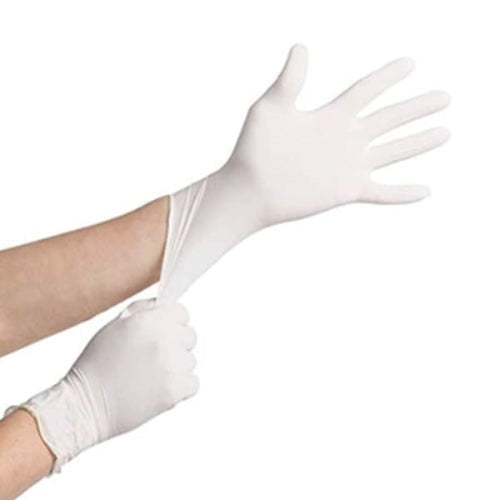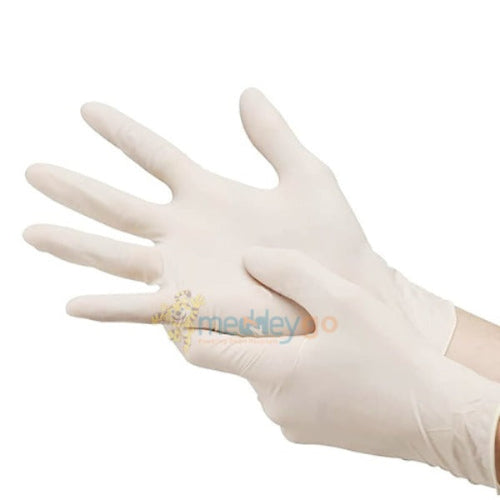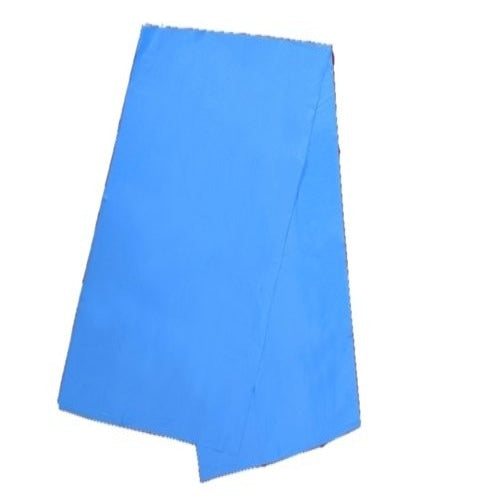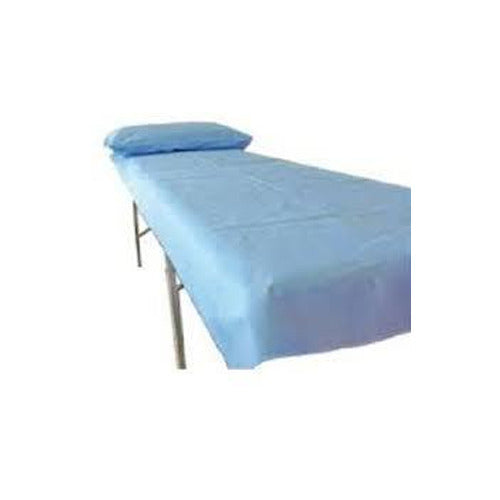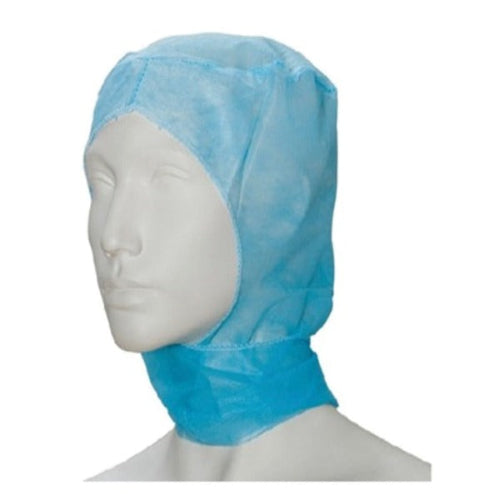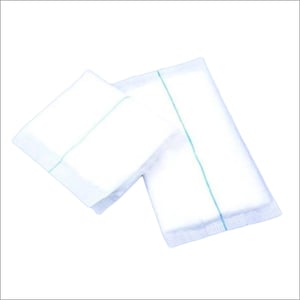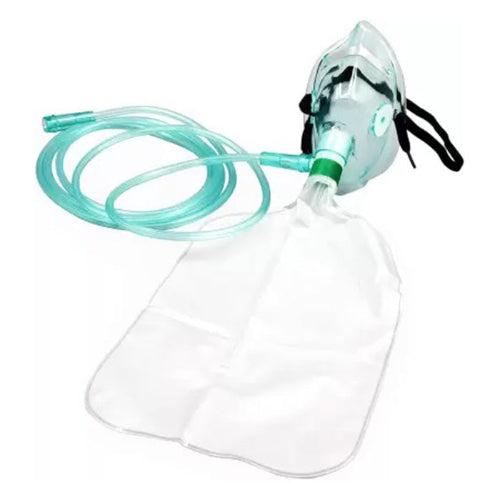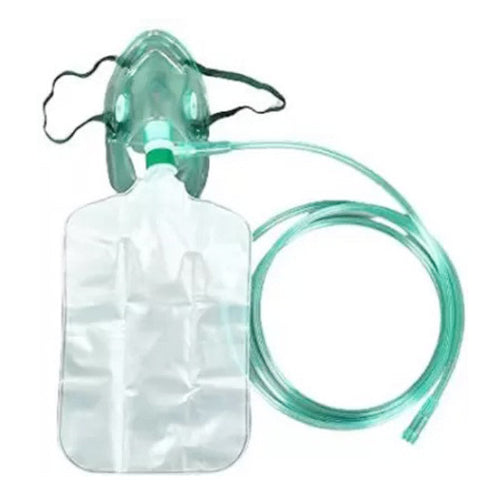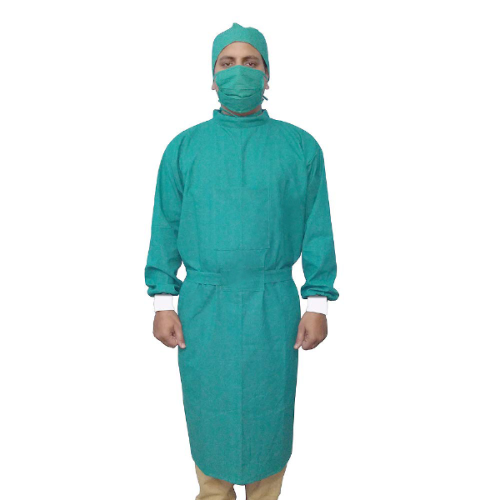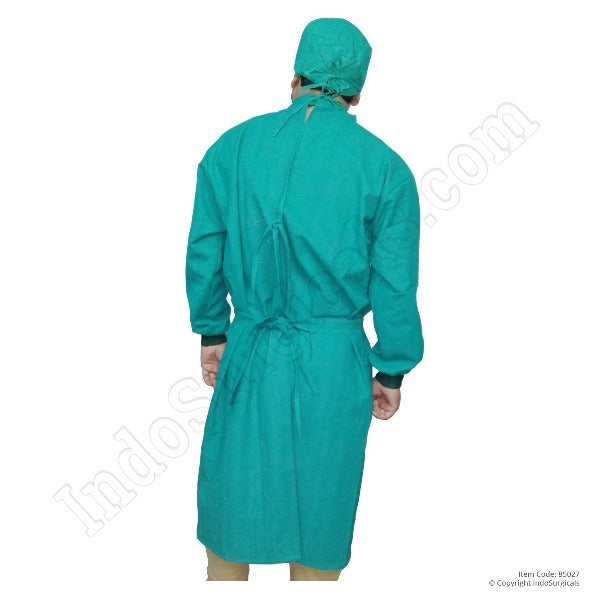Filter
101 products
Type: Gloves
Nitrile Examination Gloves (Box of 200)
Type: Nonwovens
Medansh Disposable Surgical Gown Delux Sterile with Indicator
Type: Nonwovens
Disposable Laminated Apron Blue
Type: Personal Protective Gear
Baby Drape Sterile Transparent 120x150 cm with Adhesive Film
Type: Gloves
Sterile Latex Surgical Gloves (Pack of 10)
Type: Linen
Reusable Shoe Cover Green
Type: Nonwovens
Poly Shoe Cover Disposable (Pack of 200)
Type: Linen
Nurse Staff Uniform Set Open Collar Top Magenta
Type: Gloves
Latex Examination Gloves Powdered (Box of 100)
Type: Drapes
Disposable OT Table Cover Sterile with Indicator 120cm x 210cm
Type: Bed Sheets
Disposable Bed Sheet Medium Size 100cm x 100cm
Type: Nonwovens
Disposable Astronaut Hood Cap
Type: Gauzes
Combine Dressing Pad Sterile with Indicator
Type: Nonwovens
VentiFlex High Concentration NRB Mask with Bag (Pack of 10)
Type: Linen
Reusable Cotton Surgeons Gown Set with Face Mask and Cap (Green)
Collection:
Personal Protective Gear
Personal Protective Gear: The Ultimate Shield in Healthcare & Beyond
In today’s world, Personal Protective Gear (PPE) has become indispensable—not just in hospitals and clinics, but in laboratories, industrial settings, disaster response, and even everyday frontline care. These products form the first line of defense for healthcare workers, support staff, and patients against pathogens, chemical exposure, bodily fluids, and environmental hazards.
At MeddeyGo, our Personal Protective Gear collection offers a curated suite of high-quality, certified PPE items designed for safety, durability, compliance, and cost efficiency. Whether you are a hospital administrator in Delhi, a clinic buyer in Mumbai, or a government procurement team, having the right PPE can mean the difference between containment and crisis.
In this guide, we walk you through key categories, product features, procurement considerations, usage best practices, and how to choose PPE that balances safety and usability.
Why Investing in Personal Protective Gear Matters
-
Safety & Infection Control
PPE helps prevent cross-infection and protects healthcare and support staff from exposure to viruses, bacteria, and bloodborne agents. Additionally, it acts as a barrier against droplets, aerosols, and chemical splashes.
-
Staff Health & Morale
When staff feel protected, stress and absenteeism decrease.
Comfortable, well-fitting PPE encourages consistent daily use.
-
Regulatory Compliance & Liability
Healthcare institutions must follow medical device regulations, certification standards, and workplace safety rules. Moreover, using poor-quality or uncertified PPE increases legal exposure and raises audit risk.
-
Cost Efficiency Over Time
While premium PPE costs more initially, it:
-
- Lasts longer (durability & reusability)
- Reduces failure rates
- Cuts replacement frequency
Results in lower cost per use compared to cheap disposables.
-
Scalability & Emergency Readiness
During epidemics or disasters, a strong PPE supply chain and enough stock are essential. Furthermore, reliable PPE lets healthcare teams scale operations quickly and continue working safely.
Key Categories of PPE & Their Uses
Here are the major subcategories you’ll find in the Personal Protective Gear collection, along with their typical applications and critical parameters:
Category |
Use Cases |
Key Parameters |
Notes |
|---|---|---|---|
Masks / Respirators |
These PPE items are used in general wards, intensive care units (ICUs), patient screening areas, and airborne isolation rooms. | First, filtration efficiency — should be ≥ 95% to capture very small particles. Next, fit and seal — a snug fit around the nose and sides prevents leaks. | Some reusable respirators need filter cartridges |
Face Shields / Goggles |
Operating rooms and laboratories, providing protection from splashes. | Anti-fog coating, coverage area, clear lens, adjustable straps | Lenses may be replaceable or scratch resistant |
Gowns / Coveralls / Aprons |
Surgery, isolation wards, and chemical handling. | Fluid resistance (barrier level), seam strength, breathability, sizing | Disposable or reusable; laundering cycles matter |
Gloves (Surgical / Examination / Chemical) |
Direct patient contact, clean rooms, lab work, handling chemicals | Latex, nitrile, neoprene; right thickness; good dexterity; correct size; powder-free; hypoallergenic. | Frequent replacement, disposal protocol required |
Drapes / Disposable Covers |
Surgical procedures, sterile zones | Sterility, tear resistance, adhesive edges, size, barrier properties | Used once per procedure |
Head & Foot Protection |
Surgical caps, shoe covers | Material, fit, breathable, barrier to fluids/dust | Often low cost but essential for full coverage |
Powered Respirator Units & Cartridges |
High-risk airborne exposures, isolation units | Battery life, filter types, maintenance plan | Higher investment, needs user training and servicing |
In MeddeyGo’s Personal Protective Gear section you’ll find many of these. For instance:
- Firstly, choose C-Arm Cover (ETO-sterile, disposable); thus, you cover mobile C-arm units during interventional imaging and, moreover, maintain asepsis.
- Additionally, select the Disposable Camera Drape (sterile pouch); consequently, you preserve equipment sterility and, furthermore, speed up setup.
- Meanwhile, wear Operation Theatre Gowns—reinforced surgical gown or OT gown with front pocket; thereby, you ensure reliable barrier protection and, moreover, sustain comfort in surgery.
- Likewise, opt for Powder-Free Surgical Gloves, sterile (pack of 10 / 25); hence, you get consistent fit and, in addition, dependable grip.
- Similarly, use the Reusable Surgical Cap (premium cotton); thus, you achieve secure hair coverage and, furthermore, reduce lint.
- Finally, add a Disposable Laminated Apron; therefore, you gain fluid-resistant protection and, moreover, keep scrubs clean.
What Makes Good Personal Protective Gear? (Features & Specifications)
When evaluating PPE, insist on the following features:
- Certification & Compliance — Gear must carry valid CDSCO (India), BIS/ISI, ISO, CE, or FDA-equivalent certifications. Always request test reports and certificates.
-
Barrier / Filtration Performance
- Masks/respirators: ≥95% particle filtration or equivalent standard.
- Gowns/coveralls: resistance to blood and fluid penetration.
- Gloves: puncture resistance and barrier to micro-organisms.
- Fit & Sizing — Ill-fitting PPE (e.g., loose gowns, small gloves) compromises safety. Multiple sizes should be available.
- Material & Comfort — Breathable fabrics, soft edges, anti-fog coatings, and lightweight design support sustained, comfortable wear.
- Durability / Reusability — For reusable PPE, confirm wash/sterilization cycles. Each product should state maximum safe reuse cycles.
- Labelling & Traceability — Batch number, expiry date, manufacturing date, and user instructions must be printed clearly.
- Ease of Use — Straps, zippers, closures, and donning/doffing design should minimize contamination risk and reduce training burden.
- Availability of Spares / Consumables — Filters, straps, replacement lenses, and cartridges should be easily replaceable and in stock.
- Storage & Environmental Tolerance — PPE should tolerate typical storage conditions (temperature, humidity) without degradation.
- Cost per Use / Total Lifecycle Cost — Compare not just unit price but total cost over the intended lifespan, including cleaning, repair, disposal, and replacement.
How to Use PPE Safely: Best Practices & Protocols
Better PPE fails if misused. Here is a general donning/doffing sequence and safety tips:
Step-by-Step Usage Guide
-
Pre-check
Inspect every PPE item for damage, expiry, or defects before use. -
Hand hygiene
Clean hands thoroughly and ensure they are dry before donning. -
Mask / Respirator
Place on face, secure straps, mold nose clip, perform seal check. -
Gown / Coverall
Wear over regular clothes, tie or zip securely, ensure overlap between sleeves and gloves. -
Goggles / Face Shield
Position to cover eyes and forehead, adjust strap for comfort and stability. -
Gloves
Put gloves last; ensure cuffs cover gown sleeves adequately. -
During Use
Avoid touching the front of the mask or gown. Replace when soiled or damaged. -
Removal (doffing) in order
Usually: gloves → gown → goggles / face shield → mask
Follow facility protocols to avoid contamination. -
Hand hygiene again
Wash hands immediately after removal. - Disposal / Cleaning
- Dispose of single-use items in biohazard bins
- Clean reusable components per instructions
- Inspect and store in clean, dry environment
Safety Tips & Common Mistakes
- Never touch the front of a mask or respirator when wearing it.
- Don’t reuse disposable PPE unless authorized and labeled safe.
- Don’t rush removal—improper doffing is a major cause of contamination.
- Train staff regularly and conduct audits of PPE protocols.
Procurement & Buying Guide for Hospitals, Clinics & Labs
Choosing and managing PPE procurement is a multi-step discipline. Here’s a framework to help your institution get it right:
Procurement Checklist
- Size & Fit Coverage — So, make sure the supplier offers all common sizes (S, M, L, XL, etc.) so that staff get a safe, snug fit.
- Performance Data — Therefore, ask for clear lab test reports so barrier strength and filtration efficiency are proven.
- Consumables & Spare Parts — Thus, check that spare filters, straps, and lenses are in stock so that downtime stays low.
- User Training Requirements — Hence, confirm the supplier provides training, short videos, and step-by-step guides so new users learn fast.
- Warranty / Replacement Policy — As a result, read what defects are covered and how quickly replacements arrive so service is predictable.
- Payment / Credit Terms — So, for high-value items, ask about EMI or simple pay-later options so that cash flow stays healthy.
- Vendor Track Record & Certifications — Therefore, prefer suppliers with ISO 13485 so quality systems are verified and reliable.
- Stock & Lead Time — Consequently, choose vendors who show live stock and fast delivery so emergencies are covered.
- Inventory Tracking & Logistics — Thus, ensure unique IDs and batch tracking work with your hospital software (HMS) so that records stay accurate.
Cost vs Value Analysis
When evaluating PPE costs, consider:
- Cost vs Value Analysis — So, compare the total cost over the product’s life, not just the unit price.
- Upfront Cost — Therefore, include the purchase price, setup fees, and taxes.
- Consumables / Filters / Cartridges — Thus, add the recurring parts the item needs per use or per shift.
- Cleaning / Sterilization / Laundry — Hence, count chemicals, water, energy, and staff time.
- Replacement / Failures / Waste — Consequently, factor in breakage, expiries, and scrap.
- Training / Downtime Losses — So that, you capture time for training and any lost productivity.
- Risk / Liability Costs — Therefore, include incident exposure, non-compliance penalties, and recalls.
A more expensive, certified, durable item may cost less per shift over its life span.
FAQ
Q. What is Personal Protective Gear (PPE)?
A. PPE refers to wearable items designed to protect a user’s body from injury, infection, or contamination. In medical and laboratory environments, it includes gloves, masks, gowns, face shields, respirators, and more.
Q. Which certifications should certified personal protective gear hold in India?
A. Look for CDSCO registration under the Medical Devices Rules, BIS/ISI, ISO 9001 / ISO 13485, CE marking (where applicable), or valid third-party test reports.
Q. How do I choose between disposable vs reusable PPE?
A. Consider your usage volume, laundering capability, contamination risk, and lifecycle cost. Reusables may be cheaper per use if your facility can manage sterilization cycles.
Q. How to ensure a proper fit for masks or respirators?
A. Conduct a seal / fit check. Provide multiple sizes. Train staff to mold nose wires and conduct regular checks. Some respirators require quantitative fit testing.
Q. What is the typical lead time for bulk PPE orders in India?
A. Domestic supplies often take 1–4 weeks. Specialized or imported equipment may take 4–8 weeks depending on logistics and regulatory approvals.
Q. How long can reusable PPE be safely reused?
A. It depends on material, cleaning process, sterilization cycles, and manufacturer guidelines. Always inspect before each use for damage or wear.
Q. What is the correct order of donning and doffing PPE?
A. Donning: hand hygiene → mask/respirator → gown → goggles/face shield → gloves.
Doffing: gloves → gown → goggles/face shield → mask → hand hygiene (in many protocols). Always follow your facility’s protocol.
Q. Can hospitals pay via EMI or deferred billing for high-value PPE?
A. Yes, many suppliers (including for powered respirators or full systems) support institutional credit terms or staged payments.
Product Spotlight Sections
Product Spotlight: Powder Free Surgical Gloves (Sterile)
- Features: These gloves are latex-free, offer a high level of flexibility, provide ASTM-standard protection, are made for single use, and come in different sizes.
- Applications: They are suitable for surgeries, invasive treatments, and other sterile environments.
- Why It Matters: Most importantly, hand protection is a key part of PPE. By using good-quality gloves, the risk of cross-contamination and accidental tears is greatly reduced.
Spotlight: Operation Theater Gown with Front Pocket
- Features: These gowns are made with fluid-resistant fabric, have an ergonomic design, strong reinforced seams, and a front pocket for carrying small tools.
- Usage: They are mainly used in operating rooms, during surgical procedures, and in other sterile areas.
- Tip: To ensure comfort and safety, always choose gowns in different sizes for your surgical teams and check that they fit well with glove cuffs.
Spotlight: C-Arm Cover ETO Sterile Disposable
- Features: Sterile barrier barrier to protect mobile imaging equipment, flexible design, easy mounting.
- Use Case: When performing interventional imaging in catheterization labs or surgical suites, to protect the device and maintain sterility around the imaging zone.
These spotlights help users understand what to expect, why a product is useful, and how it fits in their workflow.
How MeddeyGo Helps
At MeddeyGo, we know that buying PPE is more than simply placing an order. That’s why we offer:
- A carefully selected range of certified, hospital-grade protective gear
- Clear product details, test reports, and documents to support audits
- Flexible payment and credit options for hospitals and institutions
- Bulk order handling, logistics support, and smooth inventory integration
- Easy-to-follow training guides on donning and doffing for staff
- Reliable after-sales service, including spare parts, replacements, and maintenance
Explore our Personal Protective Gear collection today and equip your facility with gear that truly protects: from surgical gloves to gowns, respirators to full protective suits.

